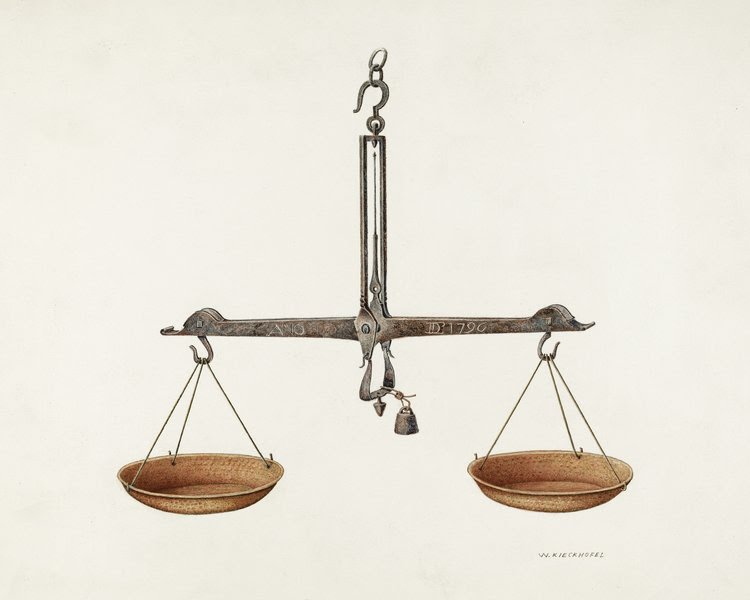The Pleasure Pain Balance - Issue 36 - 20th November 2022
Although I intended on writing further on Existentialism this week, I’ve decided to explore the unintended consequences of mass drug-administration.
Not only have we achieved vast strides forward technologically causing unintended issues of over-abundance and comfort but the same can be argued with regards to medicine. Although we are living longer, we now suffer from over-consumption rather than the malnutrition of the past. We now have medicinal antidotes to the majority of our aches and pains. However, it seems that the intended good of these medical accomplishments have unintended consequences. The majority of drugs that alleviate some form of pain are pressing on the pleasure side of the balance meaning that they have addictive potential (1). Thus, the alleviation of one form of pain causes another. Additionally, it seems that drugs that are taken to alleviate mental health disorders do not actually alleviate the symptoms of these disorders amongst various societies as Dr Lembke argues:
Despite substantial increases in funding in four high-resourced countries (Australia, Canada, England and the US) for psychiatric medications like antidepressants (Prozac) anxiolytics (Xanax), and hypnotics (Ambien), the prevalence of mood and anxiety symptoms in these countries has not decreased (1990 to 2015) (1)
There are varying factors that could contribute to this but these results still stand firm even “when controlling for increases in risk factors for mental illness, such as poverty and trauma, and even when studying severe mental illness, such as schizophrenia” (1). Therefore, these drugs intended to alleviate symptoms of mental illness are not doing their job correctly, or worse still they’re actively making the situation worse. There is increasing evidence showing that patients with anxiety and insomnia who take prescribed drugs for these symptoms (e.g. Xanax and Klonopin) daily for over a month may experience worsened symptoms (1). Patients with pain who take opioids daily for over a month increase their risk for opioid addiction as well as increased pain (1). “Compelling new evidence indicates that ADHD drug treatment is associated with deterioration in academic and social-emotional functioning” (2). Recently, more data is portraying that antidepressants administration may lead to tolerance and dependence and potentially could make depression worse in the long-run (1).
Sacrificing now for the future is best way to keep your balance
The above evidence is a fundamental metaphor for the importance of sacrifice, struggle and pleasure; when we tip the balance towards pleasure, when we alleviate all forms of struggle, when we relentlessly avoid pain, when we prioritize pleasure in the present, we cause ourselves more needless pain later. These drugs, although beneficial to a significant proportion of the population, could cause more pain later for many people due to the elimination of pain now. Dr Lembke outlines the effects of psychiatric medications on her patients. Whilst they do seem to alleviate pain short-term, they also blunt a patient’s ability to experience powerful emotions such as grief and awe (1). Whilst this may be beneficial for a patient suffering from mental illness, in thelong run, this hinders them rather than heals. Humans must feel and experience every emotion that forms the human experience, otherwise thealleviation of such painful emotions leads to a constant pressing on thepleasure side of the balance leading to unnecessary pain long-term.
This numbness and painful existence is the symptom of pleasure. This can be seen with all forms of dopaminergic activities and drugs. The balance tips too far to pleasure causing mental illness, pain and and blunting of emotions pivotal to a healthy human experience. We are medicating ourselves, in some form or another, in order to numb ourselves to the pains of human existence. You may not be addicted, but at the very least, you’re likely to have some form of compulsion that numbs you. In this technological age, it’s almost impossible not to be affected by the constant barrage of digital distractions. If it’s not porn, it’s social media. If it’s not social media, it’s binge-watching. If it’s not heroin, it’s food. If it’s not food, it’s caffeine. Becoming aware of our tendencies towards pleasure is the first step towards sacrificing those pleasures once in a while so that we experience the full breadth of human experience. When we numb ourselves with dopaminergic activities or drugs, we narrow our experience and present ourselves with pain later. In order to thrive, humans must experience all forms of existence and unfortunately that must include pain, grief, anxiety, restlessness and uncertainty. However, these aspects of existence are also the reason that we question existence itself and philosophize life. It’s the reason why we have been able to contemplate existence and produce new forms of being that are fulfilling and meaningful, therefore we need the pain just as much as the pleasure. The key is walking that extremely thin line between the two, tip too far towards pain and mental illness creeps in. Tip too far towards pleasure and addictions are formed. Accepting pain and pleasure when they come along is healthy human existence. Tipping the balance intentionally towards pain in productive ways produces healthy and meaningful pleasure later. Sacrificing now for the future is best way to keep your balance.
Keep On Struggling
Gregor
Interviewer I’m Enjoying - Jon Stewart
The Problem with Jon Stewart is a political/news satire comedy show on Apple TV which analyses various topics such as taxes, war, gender and race. I agree with the majority of Stewart’s views, although I disagree with some of the viewpoints portrayed in the show as a whole but I still watch it so that I can, at the very least, become better informed on the people I disagree with and their views. I’m currently watching the second season in which one episode surrounds gender and the trans debate in which Stewart interviews Arkansas Attorney General Leslie Rutledge regarding her passing a law banning young people from receiving medications or gender-reassigning surgeries. Whilst I agree that these forms of medications and surgeries should be administered with caution, especially regarding young people, I do not want the state or government to have outright control over the population’s choices and decisions therefore I enjoyed Stewart’s extremely powerful interviewing technique portraying Rutledge as unprepared and ignorant.
Watch The Problem on Apple TV or watch the clip in question below.
An Interview I Found Powerful - Bill Maher Interviewing Richard Reeves
This interview took place on Bill Maher’s TV Show Real Time in which Maher sat down with author of the new book Of Boys and Men, Richard Reeves. I find the conversations surrounding issues regarding men specifically as more needed than ever and am heartbroken when these conversations are shot down as sexist or offensive. The truth of the matter is that there are inequalities favouring both men and women and we must discuss both, a point Reeves makes in this clip. I believe issues surrounding men need more context and I’ll be reading Reeves book to do that.
Watch the interview below.
Quote to Ponder
It is not half so important to know as to feel - Rachel Carson
References
1) Dopamine Nation by Dr Anna Lembke
2) The ADHD Drug Abuse Crisis on American College Campuses by Gretchen LeFever, Andrea Powell Arcona & David Antonuccio
3) Jon Stewart Image - Apple
4) Bill Maher Image - Rotten Tomatoes




